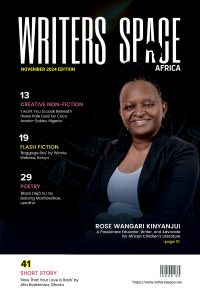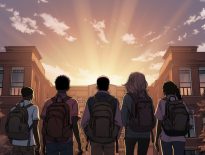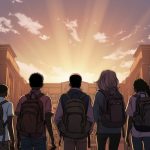In this edition, Lise speaks with Rose Wangari Kinyanjui, a multifaceted educator and creative from Kenya. Rose shares her journey into writing, her love for teaching, and her passion for African children’s literature and its influence on youth. They also discuss the role of African proverbs and narratives in shaping future generations, and Rose opens up about her free-time pursuits, including learning new skills like Kenya Sign Language and playing the saxophone.
————-
 Lise: Greetings, Rose. It’s my pleasure to have you. Can you please tell us a bit about yourself?
Lise: Greetings, Rose. It’s my pleasure to have you. Can you please tell us a bit about yourself?
Rose: My name is Rose Wangari Kinyanjui.
I was born, bred, and schooled in Kenya.
I am cosmopolitan in that I have lived in different parts of Kenya and interacted with literally every tribe. I am a teacher by profession. I studied the Kenyan curriculum and also the Waldorf curriculum, under the Centre for Creative Studies South Africa. I have taught formerly in public and private mainstream schools and schools under Cambridge and American systems in the Coast, Central, and Nairobi City. Currently, I am self-employed, teaching music and offering learning support for individuals in the spectrum and regulars.
Lise: How did you get into writing?
Rose: I sincerely don’t know how I got myself into writing.
I probably started off pretty early in life when I could scribble things on the margin of my book while the teacher taught. The scribbles were not related to what the teacher was teaching. Whatever came to mind, I scribbled and let go. As time went by, I realised I loved writing. I am quite observant of my surroundings. They inspire my writing. I am a dreamer. I put my dreams and feelings on paper.
Lise: Which genre of writing do you find yourself most comfortable in and why?
Rose: Creative non-fiction is where most of my writing falls. I think the reason for this genre has been captured in the last part of the answer to question 2.
Lise: Ah, I see. Rose, apart from writing, what else do you do?
Rose: Apart from writing, I Travel, Hike, Cycle, Read, sing, play an instrument, teach and mentor.
Lise: Wow! That’s huge! How do you juggle your other responsibilities with writing?
Rose: I write when all is quiet. However, there has to be some music playing in the background. Mostly instrumental. I handle other responsibilities during the day.
Lise: This year, AWC’s theme is “the role of African children’s literature in shaping the youth”
Permit me to ask you, what do you think is the role of African children’s literature in shaping the youth?
Rose: African literature is rich in moral values, language development, character development and writing. The use of rich African proverbs, metaphors, satire are some of the core elements that influence both the writing and character development. Whether written or oral narrative, literature captures the imaginative faculties of the youth and help shape their futuristic writing.
Lise: Rose, what do you do in your free time?
Rose: I wonder if I have free time.
When I find myself finding free time, I learn a new skill. In recent years, I have learned Kenya sign language. I am using it in church to reach out to the DEAF community. Currently, I am learning how to play a saxophone and how to ride a motorbike.
Lise: Is there anything else you would like to tell us?
Rose: I am a go-getter. I am always looking out for opportunities to grow and make money.
Lise: Thank you so much, Rose. It was good to have you.
Rose: Thank you!!!
Read – Patrick Nzabonimpa (Tom) – A Voice of Art, Passion, and Purpose







